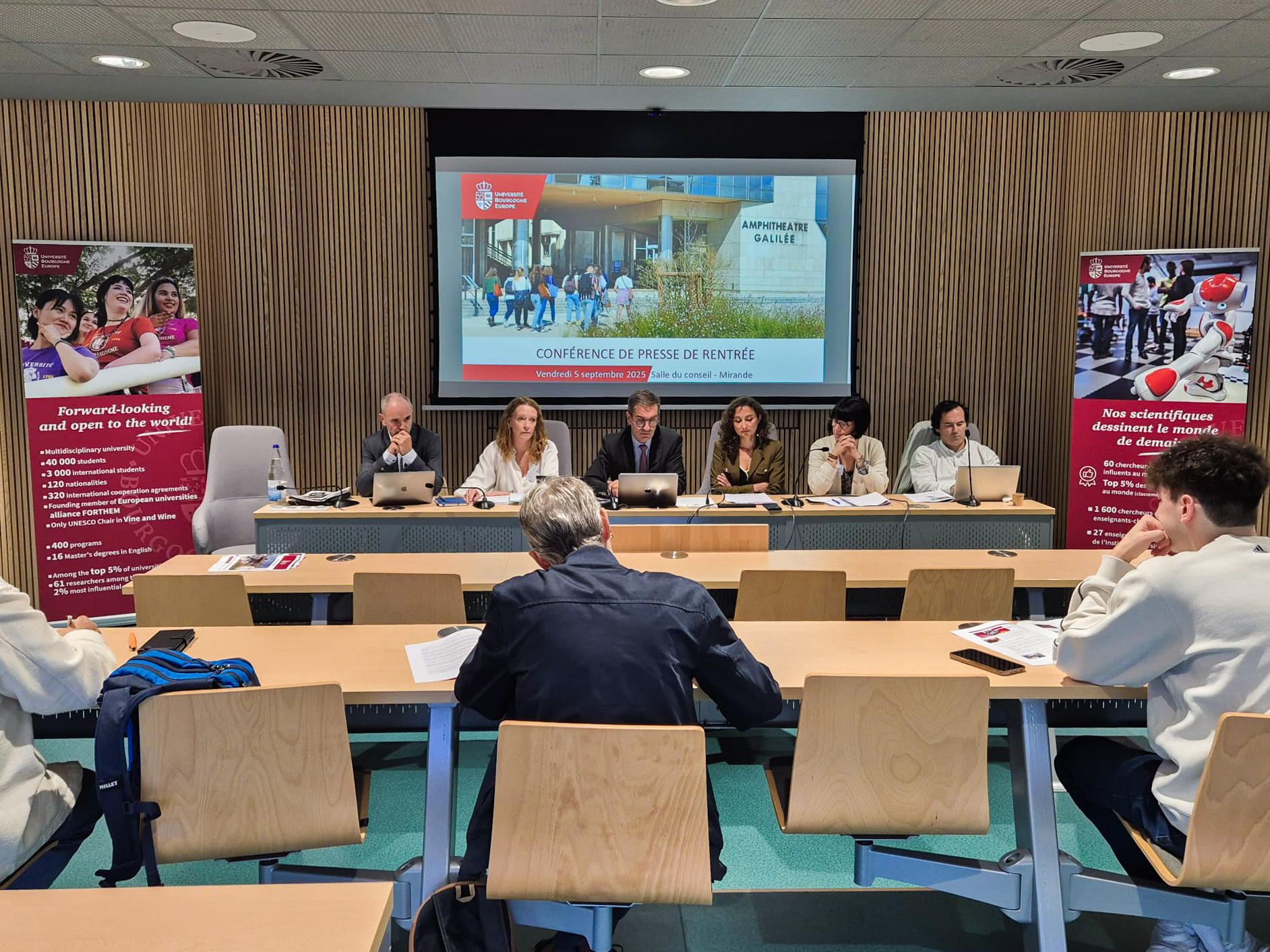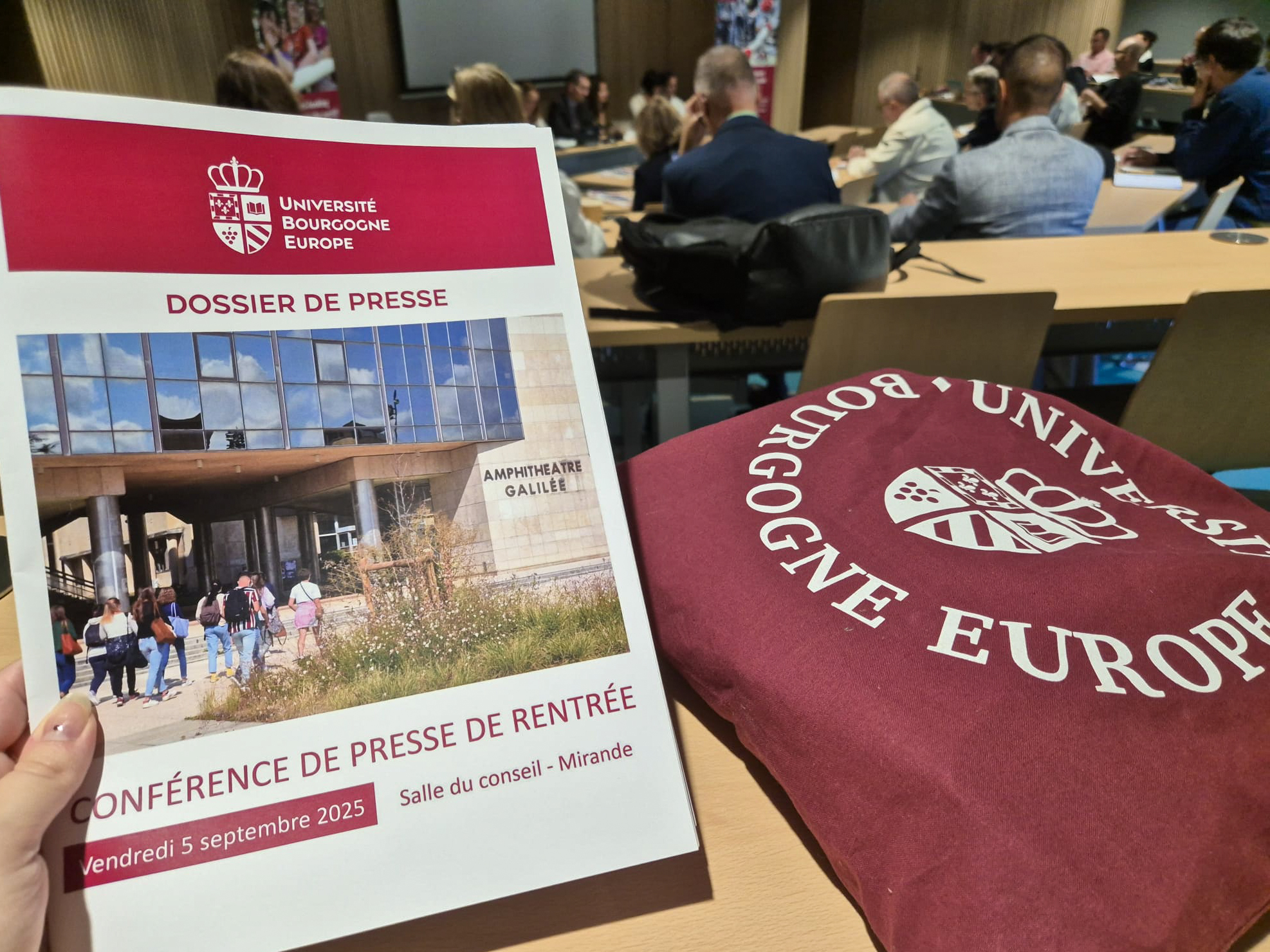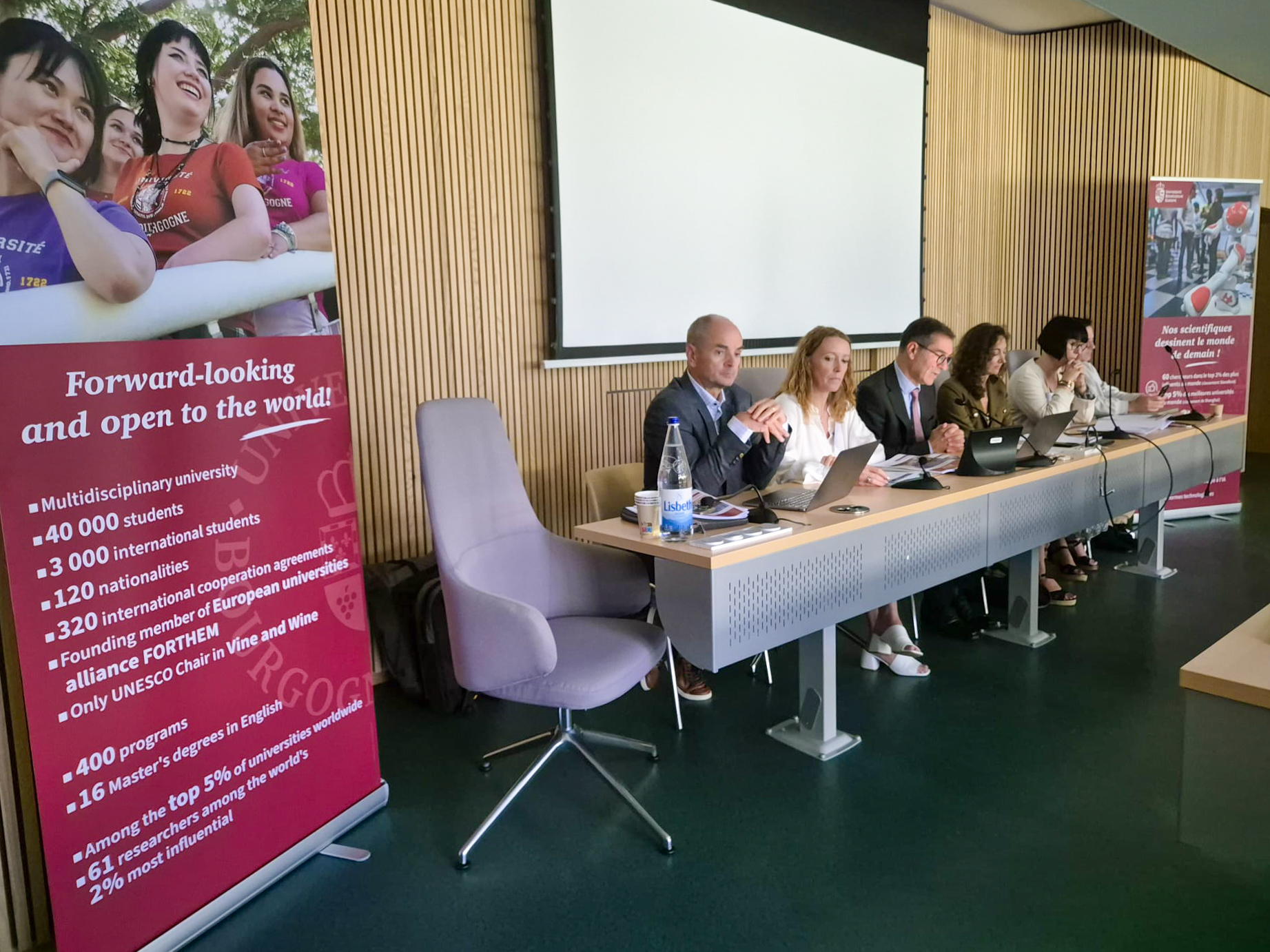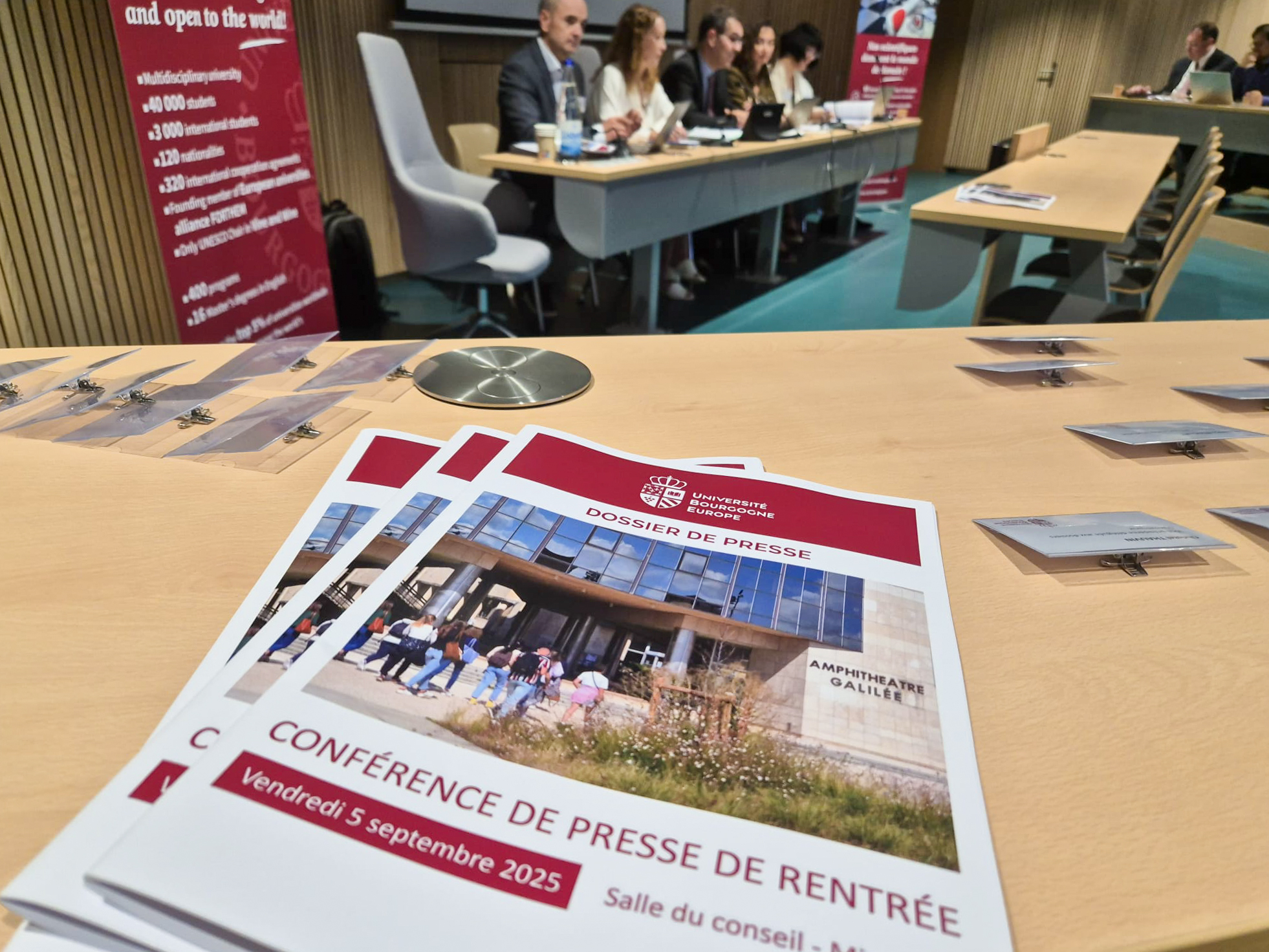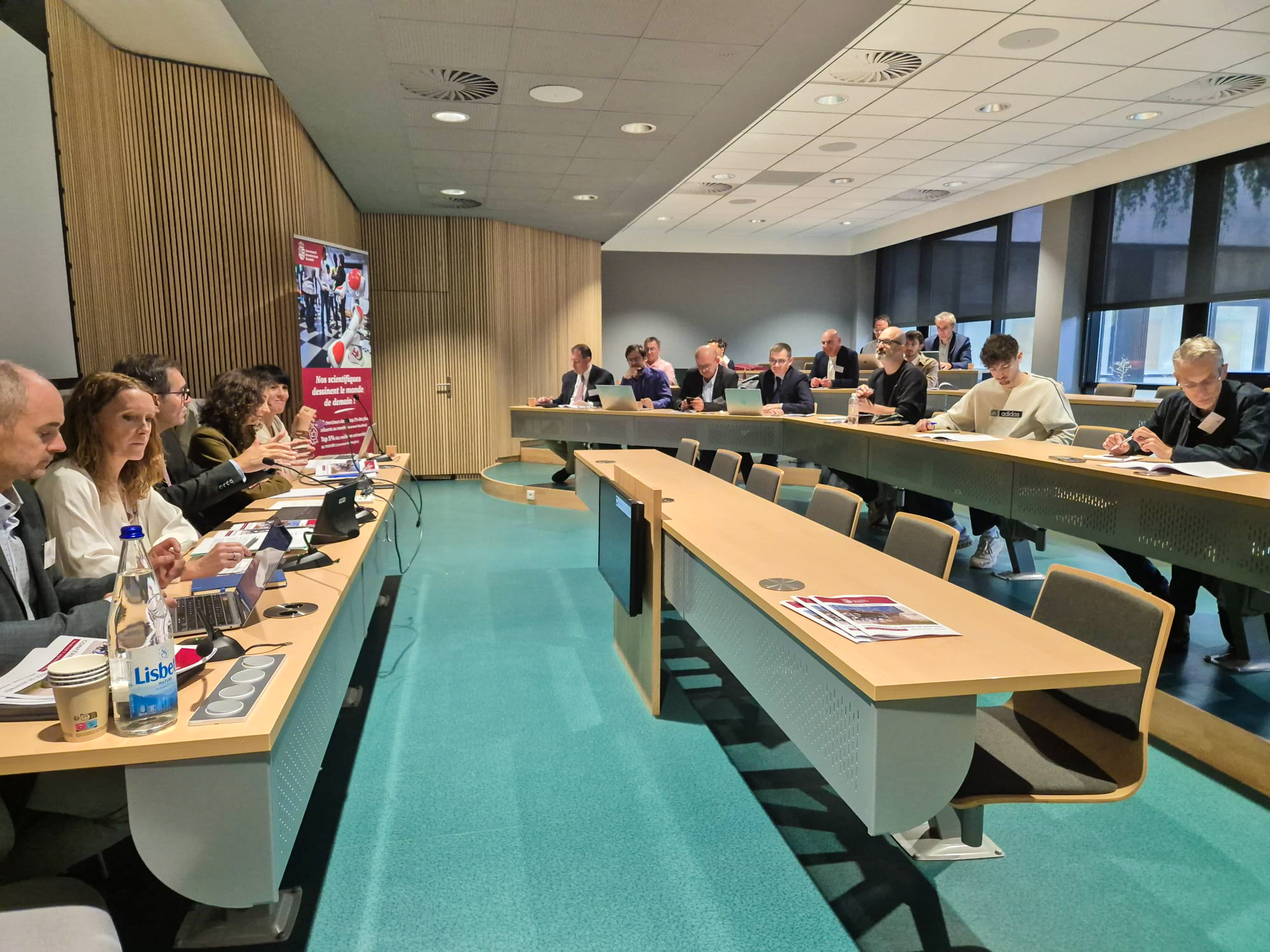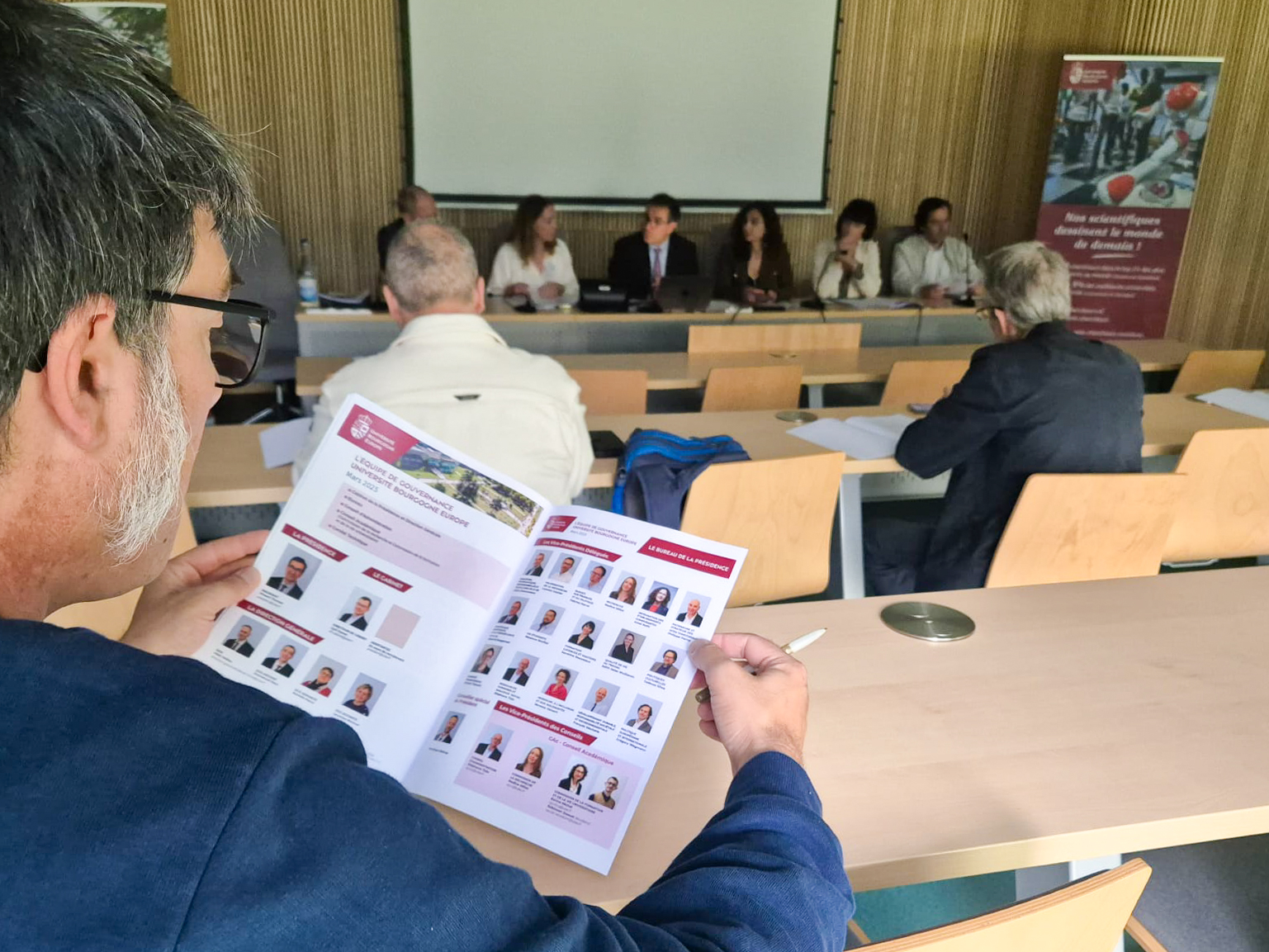Press conference for the start of the 2025–2026 academic year
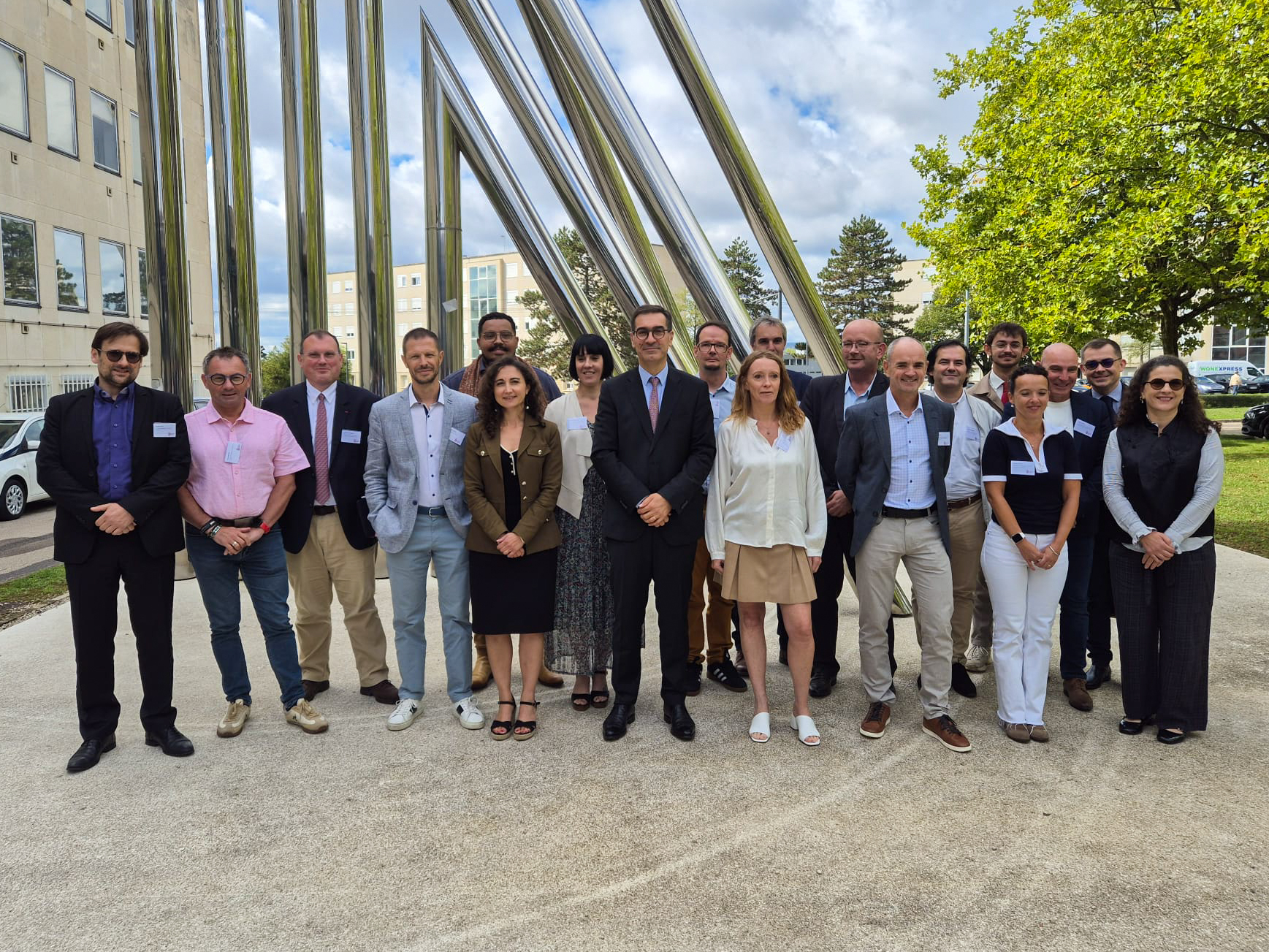
Université Bourgogne Europe held its 2025-2026 academic year press conference in the Council Chamber of the Faculty of Science and Technology.
During the conference, Vincent Thomas, President of the UBE, and his governance team provided an update on the university’s current activities. Future initiatives and major projects that will shape the new academic year were also announced.
Consolidation of UBE
UBE continues to consolidate its position as an Experimental Public Institution, with a key milestone coming up: the creation of the Strategic Steering Committee (COS) in October. Composed of prominent figures from the socio-economic world whose activities have an international dimension, this COS will aim to evaluate UBE on the basis of its research output.
Five distinguished members will comprise this committee:
- Hans KRETZ, member of the Laboratory for Studies and Research on Contemporary Philosophical Logics (LLCP), University of Paris 8.
- Franck LETHIMONNIER, Director of the Technology for Health Thematic Institute, Inserm.
- Pierre-Emmanuel MOYSE, Professor at the Faculty of Law, McGill University.
- Irena G. STARA, Doctor of Bioorganic Chemistry and member of the Council for International Affairs of the Czech Academy of Sciences since 2018.
- Sunniva WHITTAKER, Dean of the Faculty of Humanities and Education at the University of Agder and elected Rector of the University of Agder since 2019.
The committee will hold its first meeting from 13 to 15 October 2025.
On the employee side, it is worth noting the introduction of compulsory mutual insurance for all civil servants. From April 2026, civil servants working in the Ministries of Education, Higher Education, Research, Sport, Youth and Community Life will benefit from a new collective supplementary health and welfare scheme.
This scheme, which stems from the interministerial agreement signed on 26 January 2022, will replace the current €15 per month contribution. As such, UBE is implementing this compulsory mutual insurance scheme for all employees, at a cost of €3.6 million for the institution.
The increase in the number of students confirms the growing attractiveness of UBE among new baccalaureate holders in their first year of undergraduate studies:
- +5% increase in new entrants
- +4.4% increase in the attractiveness of post-baccalaureate programmes among baccalaureate holders
- In 2024, +14% of baccalaureate holders outside the Dijon academy
This increase reflects not only the appeal of Université Bourgogne Europe to students, but also the spirit of complementarity that exists with the institutions that have joined UBE.
By providing access to high-quality, diverse education, the institution supports the citizens of tomorrow in becoming active members of society and renowned researchers.
With 400 courses and 31 research structures, Université Bourgogne Europe is committed to offering new courses tailored to the needs of the region and the economic context:
- Chalon-sur-Saône University Institute of Technology: Professional Bachelor’s Degree in Maintenance and Technology: Multi-technical Systems – New Course in Solutions and Innovations in Agricultural Equipment.
- Faculty of Law, Economics and Political Science: Master’s Degree in Business Law – Course in Digital Law.
- Faculty of Health Sciences: Orthoptist Certificate of Competence.
- Faculty of Science and Technology: Master’s Degree in Mathematics.
- UBE: ESM and Esaab-Nevers courses now offer Bachelor’s and Master’s degrees.
- Compulsory module: Ecological Transition and Sustainable Development (TEDS), for all second-year students in the Faculties of Life Sciences, Earth and Environmental Sciences, Science and Technology, Geography, and Sports Science.
Artificial Intelligence Module: ACADEM’IA Project
This ACADEM’IA project will enable:
Awareness of Artificial Intelligence, through conferences, for all first-year students.
Thanks to the CAIRE project, one of the AI acculturation modules will be rolled out for all second-year students.
In L3, students will benefit from enhanced AI courses for AI research acculturation (experimental sciences or humanities and social sciences), enabling them to make the transition from Bachelor’s to Master’s degrees with continuity towards a PhD.
More information in the official press kit (french only).
Student life: UBE introduces menstrual leave
The president discussed the implementation of concrete measures for student life, including the introduction of menstrual leave, which allows people who menstruate and suffer from dysmenorrhoea to justify their absence on an ad hoc basis without having to provide a medical certificate.
‘This is a real step forward, making life easier for students in difficulty’
said Vincent Thomas, President of UBE
Further information: Menstrual leave at UBE (french only).
Research: Launch of the SPARK joint research laboratory
Accompanied by Nadine Millot, Vice-President elected to the Research Commission, the President reviewed the launch of SPARK, the joint research laboratory presented on 1 July at the ICB premises at the Maison de la Métallurgie in Dijon.
This strategic alliance between UBE, SINTERMAT and Safran will enable joint exploration of the theme of ‘Development of innovative materials through Spark Plasma Sintering’.
For more information: Presentation of SPARK, the joint research laboratory between UBE, SINTERMAT and Safran
International: UBE’s strategy of excellence recognised in the Shanghai ranking
Since 2014, UBE has been featured in several leading international rankings highlighting the quality of its teaching and research. Université Bourgogne Europe has been included in the Shanghai ranking for the ninth consecutive year and has climbed two bands of 100 places in the global ranking (601-700), placing it 20th nationally.
‘This result reflects the excellent momentum of university research,’
said Vincent Thomas, President of UBE
With this result, UBE has consolidated its status as a world-class university, placing it among the top 5% of universities. According to the president, ‘we are increasing our publishing potential by 30% thanks to the EPE, so we are looking forward to seeing the effects of this joint agreement with Université Bourgogne Europe’.
Further reading: Progress in the Shanghai ranking: UBE’s strategy of excellence recognised
FORTHEM: In November, UBE will host the Researcher Grand Prix
Grégory Wegmann, Deputy Vice-President for European and International Policy, then took the floor to discuss the FORTHEM Alliance’s Researcher Grand Prix.
For its second edition, UBE will have the pleasure of hosting the FORTHEM Researcher Grand Prix, an international event that showcases the talents of tomorrow. Organised as part of the FORTHEM Academy for early-career researchers, this competition aims to promote doctoral research at European level, while strengthening the links between science, society and citizenship. This format, inspired by popular science, is a springboard for young European researchers.
By hosting this event, Université Bourgogne Europe reaffirms its commitment to scientific openness, European cooperation and the promotion of young talent.
To go further: Université Bourgogne Europe will host the 2nd edition of the FORTHEM Researcher Grand Prix
Sustainable development: Creation of a ‘Green Office’, a first for a French university!
François Weckerlé, Vice-President for Sustainable Development and Social and Environmental Responsibility, discussed the creation of a ‘Green Office’ within the university. A true hub of synergy between students, staff and teacher-researchers, Université Bourgogne Europe is the only French university to deploy this type of structure, which aims to work towards the UN’s 17 Sustainable Development Goals (SDGs).
‘UBE wants to become a sustainable university,’
said Vincent Thomas, President of UBE.
Students, teachers and staff trained in transition issues work together within the Green Office to raise awareness, train, educate and lead various projects related to ecological transition and sustainable development.
Finally, the press conference concluded with discussions between journalists and the university’s governance team.
Find more information in the official press kit.
